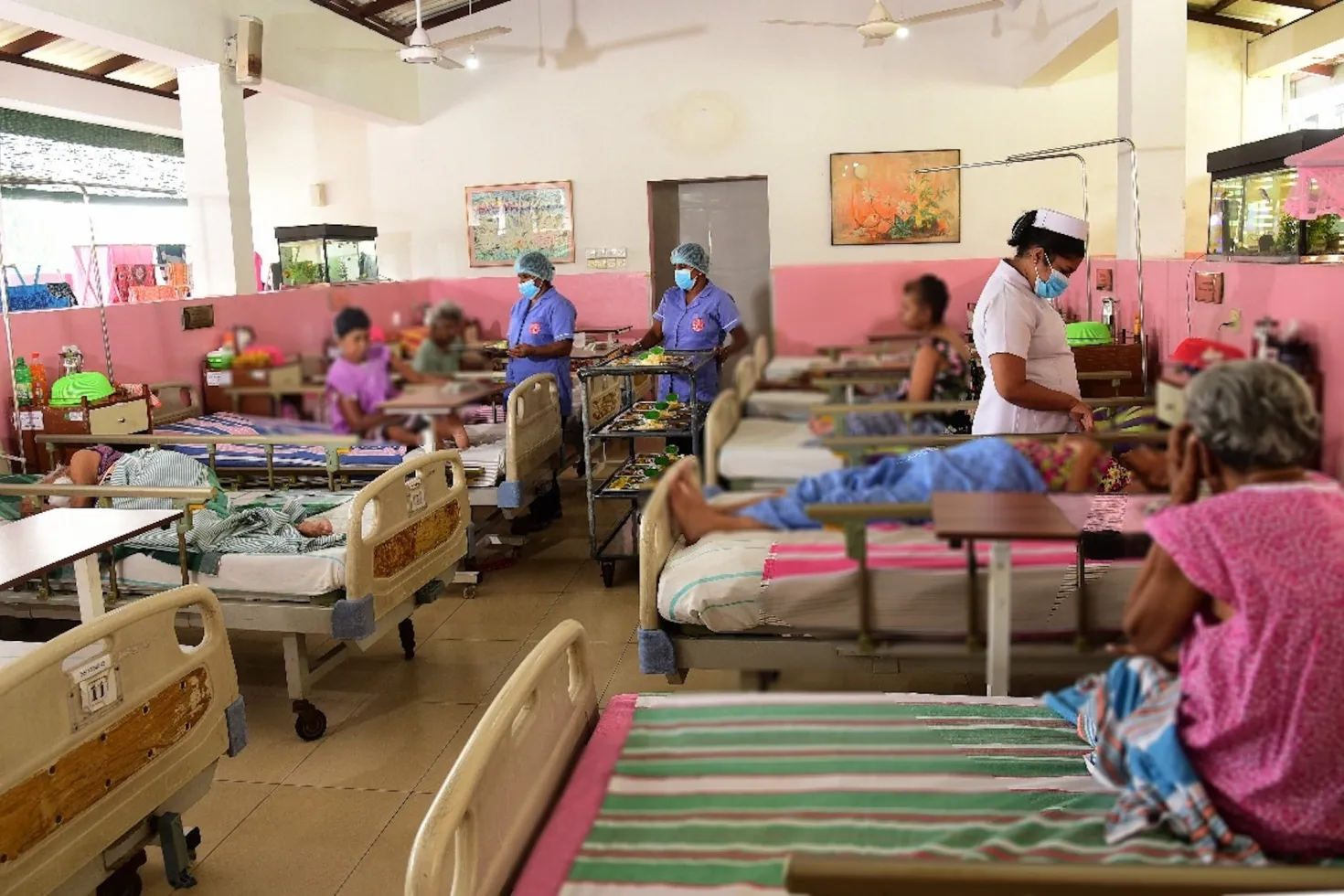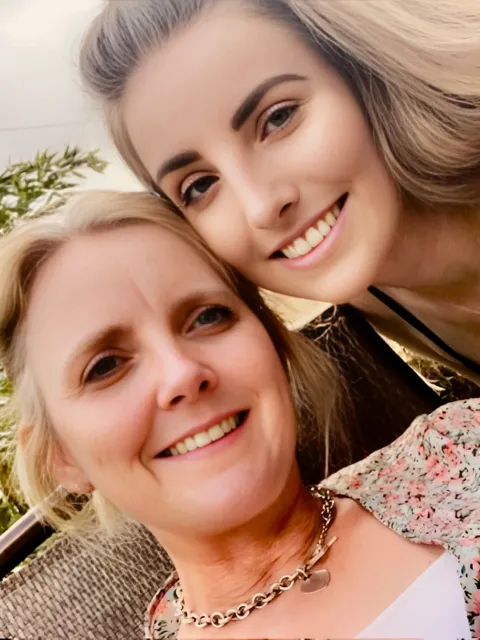Transforming fractured health systems: prioritising people-centred cancer care
Integrating health services and taking a people-centred approach to cancer care delivery can help bridge systemic gaps in fragmented health systems, improve outcomes, and ensure more equitable access to services.

The Sri Lanka Cancer Society – Shantha Sevana Hospice - Female Ward
HIGHLIGHTS
-
Fragmentation across services leads to delays, poorer outcomes, and a diminished quality of life for people with cancer.
-
Global Focus on Cancer, a UICC member, highlights the need for systems that go beyond treating disease to addressing patients’ social, emotional, and logistical needs.
-
Civil society groups like the Sri Lanka Cancer Society demonstrate how local action—palliative care, transport, financial aid—can improve access and outcomes.
-
National cancer control plans (NCCPs) provide a strategic framework to embed cancer care within broader health systems, ensuring sustainability and equity.
Health systems globally often grapple with fragmentation, siloed approaches, and a disease-focused management style, leading to gaps in care and inequities in access, particularly for people living with cancer.
This fragmentation or lack of coordination between services can result in delayed diagnoses and treatment, a diminished quality of life, and poorer outcomes.
“We often see health systems that are brilliant at treating disease but not very good at caring for people,” says Carolyn Taylor, Founder and Executive Director of Global Focus on Cancer (GFC), a UICC member and partner of the International Cancer Control Partnership (ICCP). “This can manifest as a lack of coordination between different parts of the system, a failure to address the social and emotional needs of patients, and a lack of attention to the barriers that prevent people from accessing timely and appropriate care.”
These systemic fragilities demand innovative solutions and a comprehensive approach that targets the underlying issues within the health system. This includes strengthening primary care services, improving referral pathways, enhancing communication and coordination between different healthcare providers, and investing in workforce training and development.
In order to optimise access to essential cancer medicines, notably, health systems need to robust and equipped to deliver the right treatments to those who need them, when they need them, safely and effectively.
A shift towards integrated, people-centred care models can help address some of these systemic issues by prioritising the needs and experiences of individuals navigating the complexities of cancer diagnosis, treatment, and survivorship.
Cancer impacts not only every aspect of a person’s life, but also the lives of those around them, and that addressing all these aspects can help a person better manage their disease and can lead to a higher quality of life and improved adherence to treatment.
Carolyn Taylor emphasised, however, that people-centred care goes beyond tailoring services to individual needs—it requires a shift toward system-wide approaches that are responsive to the broader context of people’s lives, including the social, economic, and environmental factors that shape their access to care.
The Sri Lanka Cancer Society, a UICC member organisation, provides a compelling example of the role civil society organisations (CSOs) can play in overcoming barriers to care and promoting people-centred approaches.
Anoja Karunaratne, President of the Sri Lanka Cancer Society, outlined the wide range of services that the Sri Lanka Cancer Society provides. These include palliative care to alleviate pain and discomfort, financial assistance to help patients afford treatment, transportation and accommodation support for those who must travel long distances for care, and reintegration programmes to help individuals return to work and society after treatment.
“Sri Lanka faces over 33,000 new cases of cancer and nearly 19,000 related deaths every year. We understand that cancer care is not just about medical treatment; it's about supporting the whole person and their family. When someone receives a cancer diagnosis, it affects not just their physical health but also their emotional well-being, financial stability, and social relationships. Our mission is to provide comprehensive support that addresses these broader needs, and alleviate some of the practical challenges that can prevent individuals from accessing timely care.”
– Anoja Karunaratne, President of the Sri Lanka Cancer Society
National cancer control planning: a framework for integrated, people-centred care
Integrating cancer services within the broader health system is essential for ensuring that patients receive comprehensive, coordinated care. National cancer control plans (NCCPs) can provide a roadmap for achieving this integration and strengthening health systems with more inclusive approaches, and ensuring that patients have access to the full range of services they need.
“National cancer plans serve as a powerful tool for driving the transformation of health systems by providing a framework for aligning policies, outlining specific strategies for strengthening referral pathways, improving communication between different healthcare providers, and prioritising investments in cancer prevention, early detection, treatment, and supportive care.
– Sonali Johnson, Head of Knowledge, Advocacy, and Policy at UICC
Carolyn Taylor concurred, stating: “National cancer control plans allow us to address broader patient needs and barriers effectively without necessarily increasing costs.”
She also underscored the importance of engaging individuals with lived experiences in developing NCCPs. “Their insights are invaluable for identifying real barriers to care," she said. Moving beyond tokenism, she calls for sustained roles for people living with or affect by cancer on advisory boards and implementation teams.
“Involving people with lived experience in the design and delivery of cancer services is essential for ensuring that their needs and preferences are taken into account. We need to create sustained roles for them on advisory boards and implementation teams. Their lived experience provides invaluable insights into the real barriers that people face and the solutions that are most likely to be effective.”
– Carolyn Taylor, Founder and Executive Director of Global Focus on Cancer (GFC)
Taylor stressed the need for advocacy at the national level to secure funding for NCCPs, demonstrating the societal value of these plans. In Sri Lanka, for example, efforts are underway to integrate cancer care into broader non-communicable disease (NCD) programmes, ensuring that essential services such as screening and treatment are accessible to all.
Cancer Early Detection Centres (CEDCs) in Sri Lanka, which operate under the national cancer control programme and part of the Non-Communicable Disease Bureau within the Ministry of Health, provide free consultations, education on cancer risk factors, and screenings for breast, cervical, and oral cancers, aligning with national NCD strategies that emphasise prevention and early detection.
The country’s health financing system faces significant challenges, however, despite extensive free public healthcare services. Anoja Karunaratne explained that while many services, including inpatient care and preventive measures such as immunisations and maternal health programmes, are often subsidised or free in public hospitals, preventative screening programmes are not universally covered.
“Screening for cancers such as breast or cervical cancer is critical for early detection and better outcomes. But many people cannot afford these tests privately, and public facilities often lack the resources to provide them at scale. This creates inequities in access to early diagnosis, particularly for low-income populations.”
– Anoja Karunaratne, President of the Sri Lanka Cancer Society
Carolyn Taylor also emphasises the importance of addressing the broader determinants of health that influence cancer risk and outcomes, in order to ensure that everyone, everywhere can access health servcies when they are available and affordable.
“We need to look beyond the medical aspects of cancer and address the social, economic, and environmental factors that contribute to the disease,” she state. “This includes tackling issues such as poverty, lack of access to education, and exposure to environmental hazards.”
Finally, at a time when international cooperation and partnerships are key to addressing the global cancer epidemic, Carolyn Taylor expressed concern about the impact of recent funding cuts and restrictive policies on cancer research in the US.
She highlighted the disproportionate effect these measures have on vulnerable populations and how such cuts can stall clinical trials, delay new treatments, and widen inequities in access to care, particularly in low- and middle-income countries. “When funding is delayed or cut, it’s not just about numbers – it’s about lives,” she stated.
Last update
Wednesday 16 April 2025
